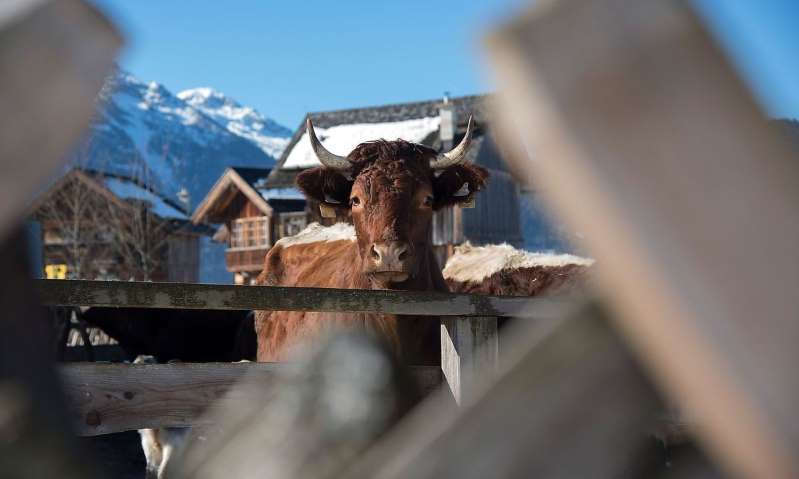![Expensive premium, dubious benefit [premium]](/wp-content/uploads/2021/02/teure-praumlmie-zweifelhafter-nutzen-premium-162e91a.jpg)
Hardship fund, sales replacement, fixed cost subsidy. Failure bonus, deferrals, forest funds. In the corona crisis, the cornucopia was also poured out over the Austrian farmers. Among other things, the farmers are provided with an investment premium. Anyone who makes investments receives seven percent of the sum spent. There is even 14 percent for investments that are “particularly ecologically compatible” – this also applies to projects that promote digitization.
This premium is quite a hit. Agriculture Minister Elisabeth Köstinger (ÖVP) announced on Thursday that it was being “diligently accessed”. In figures this means: Almost 33,000 applications were submitted to Austria Wirtschaftsservice (AWS) by February 7th. It is about subsidies amounting to 314 million euros. Of these, 40 percent met the criteria to double the grants from seven to 14 percent.
The ministry gives examples: A farmer purchases a new rotary harrow (a device for cultivating the soil) that costs 6,000 euros net. For this he receives a seven percent or 420 euros premium. Or: A farmer can create a new homepage for her business, including an online shop. That costs 6000 euros. Since this falls under digitization, it receives 14 percent. That's 840 euros.
There is a decline in sales, especially for pork, eggs and wine, said Köstinger on Wednesday in Parliament's Agriculture Committee. The ministry could not say exactly how high the farmers' losses were in 2020.
60 million euros will also be used as compensation for losses for farmers who are indirectly affected by the closings. For example, suppliers for restaurants.
Disagreement over effects of the bonus
There is also an investment premium for non-agricultural holdings. To date, companies have submitted 104,390 applications and have thus received 3.1 billion euros in grants. According to Economics Minister Margarete Schramböck (ÖVP), investments totaling 32 billion euros were initiated. Party colleague Köstinger made such calculations for her department: The almost 33,000 applications would have triggered investments of 3.5 billion euros in the areas of agriculture, forestry and food processing.
However, experts are skeptical about the real effect of the investment premium. Oliver Picek, chief economist at the Momentum Institute, which is on the left in terms of economic policy, speaks of “fantasy figures”. It is not known how many of the investments were additionally triggered. “Many of the investments, probably the majority, would have been made without a premium,” says Picek. These are deadweight effects – “Körberlgeld” that companies take with them for investments that they would have made and paid for anyway. But he also sees good things in the bonus: that some companies prefer their investments “and thus support economic development in times of crisis,” says Picek.
An evaluation by the Parliament's budget service at the request of the Neos in November (“Die Presse” reported) tends to do the same. The report speaks of a “transfer to companies”.
Budget service also criticized it
According to the Ministry of Economic Affairs, every euro of funding triggers investments of ten euros. According to the Ministry of Agriculture, this is also the case with farmers. But according to the budget service, a funding volume of two billion euros only entails two billion euros in additional investments. So a ratio of one to one. In the case of the other investments, there are pure deadweight effects or the investments are brought forward. They would have been implemented even without government subsidies. Although this has a positive effect in 2020 and 2021, it has an opposite effect in the following years.

